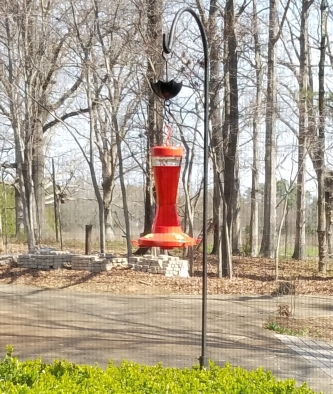Lost Gems of Character Development
Lost Gems of Character Development
We writers and authors spend an exhaustive amount of time learning our craft. You have to do it. There are so many technical aspects about writing which must be studied. You must learn about plots, scene and sequel creation, dialogue, monologues, internal dialogue, Point of View (POV), deep POV, grammar, punctuation, formatting, vocabulary, character arcs, style, genre, trends, world-building. Good grief the list is endless! And there are dozens of checklists, reminders, rule books, handouts, programs, spellcheckers– Holy Info Overload, Batman!
The learning must happen if we want to produce a quality story, chapbook, or novel. I know for me, there is a constant review of certain lessons with every novel, checking style and format, always improving vocabulary, looking to reinvent a master plot or character trope and always striving to be original in the process.
One thing I recently noticed in my writing, and in so many other books, is the missed opportunities for deeper character development. Great care is taken to showcase the golden flecks in someone’s eyes, the blue-black sparkle of hair, the limp, the bushy eyebrows, or the curl of smoke from a pipe. Delicious details offer insights to the vampire’s desires, the streetwalkers boots, the royal throne or the courtier’s waistcoat. Even the most intimate scenes offer description of the silky sheets, the sweat that runs down the chest, the sound of flesh against flesh.
All of these details are ones we’ve been told to add. We know we need to cover all the senses, preferably in every scene. We want the readers to see the people as clearly as we do. To feel and hear the swish of a gown on the stairs, to taste the burning heat of a rye whisky tossed back without thinking, we need the readers to follow us as we dodge around trains who vent steam and blare horns. We go to a picnic and treasure the dappled sunlight, swat the flies over the potato salad and our mouth water when we smell the fried chicken. These details are what flesh out every scene and give depth to our tales.
What if I told you that you can do more, that you are missing one of the best treasure troves for letting the reader learn about your characters through what THEY find in your stories?
Sometimes deeper character development, and therefore hidden meanings or careful foreshadowing, even character secrets, comes from what isn’t directly said or carefully described. What about what surrounds the character in your story? Are you taking advantage of the character’s personal items that never change, that are personally offered and perhaps never addressed?
Let’s use my house and me as an example for what I mean. In every story, your characters live somewhere, whether its a tent, a mansion, an RV, or a brick and mortar home. In my case, it’s a ranch house. I don’t like stairs anymore because I have a bad knee (have had since I was in my 30’s). This character information which the one story house emphasizes. We’ll mark that as “Fodder.”
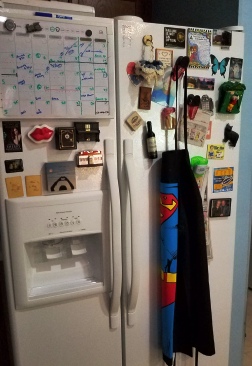
Next, my kitchen. A great many families hang out in the kitchen. Activity thrives there. Look around. Everyone plants their flag, so to speak, in their surroundings. What’s on the counter that never changes? The wall? How about the refrigerator? Fodder! Here’s a pic of my refrig. There are things that never change and others that change with moods. Fodder! Do you see personalities reflected here? Look at the gold magnet or the retro magnet. How about the apron?

We speak of the roaring fire by the wingchair or the mantle clock. What about the walls? The unchanging, personally decorated walls? Ah, more secrets of likes and dislikes! Look at this picture of my dining room. I have a deep love for Egyptian art. Did you know? You can learn so much from what people hang on the wall for permanent decoration. Secrets to their likes, dislikes or personalities. Let them be noticed.
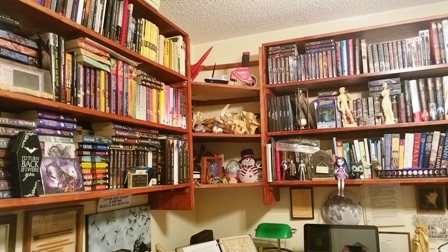
I know we all enjoy reading about a character in their library. Big old volumes of books, shelves upon shelves, a footstool, a ladder, a cuppa tea and a late night read. But wait! There are nik-nacs, maybe china? Maybe bronze? Let’s look at a portion of my library. Oh my! The oddities abound. Statues and photos and hints galore. Most of these things do not change and reveal so much about me. Do you see the vampires or the dragons? How about the moon or the variety? So much fodder for a tale that reveals personality.
A home also offers insights into hobbies. Do you show a character’s pottery? Artwork? Greenhouse, perhaps? Do you know I like to take photographs? On the spare bedroom wall you find this framed piece, showcasing several photos. Mine. It speaks of some of my deepest loves. More fodder.
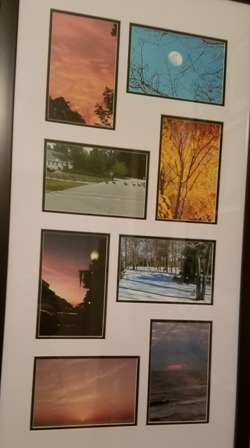
There is also a boom in contemporary fiction about professionals like the military, the doctor, the fireman or the cowboy. These people surround themselves with items that represent them or pieces that show something in their past that represents this profession. In my case, there are retirement cases for my husband and me, that showcase our years of military service. These can be the most personal mementos available. Fodder awaits!
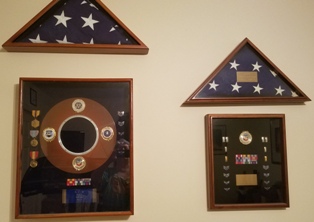
Details are the decoration that gives a story depth and richness. Don’t miss out on a chance to provide unique depth to your characters by using the details that may never change. Understand and flesh out the things that make the characters real and you define them in a way that readers will relate to on a deep personal level. Oh look, your reader will say, she puts her daughters drawings on the fridge too. And she uses the magnet of her trip to Boston Harbor to hold it up. You know, the place where she spent her summers so long ago…
Fodder.
These are the lost gems that make the difference between good and great character development. Set your work apart by giving your readers whole characters they can never forget because in the end, the readers want more than anything to be those characters. Make it happen for them.

Thanks for coming by. Let’s make this a great month!
I remain as ever, Yours Between the Lines,
Sherry















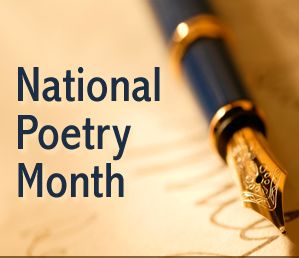

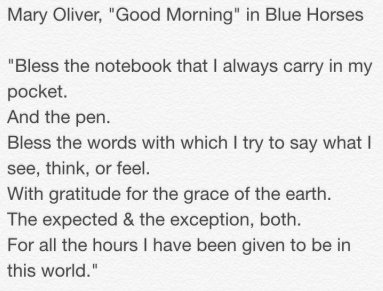
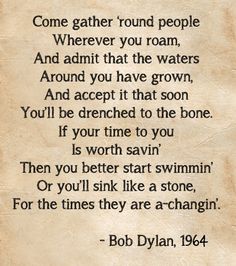

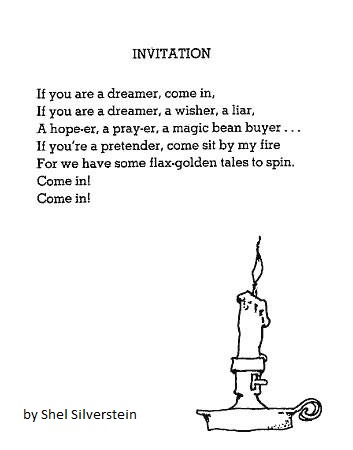

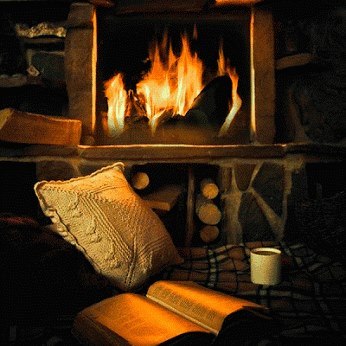
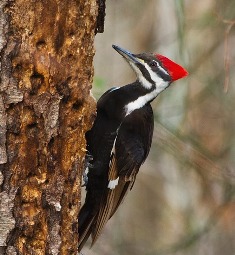
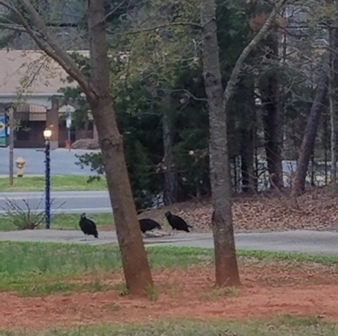
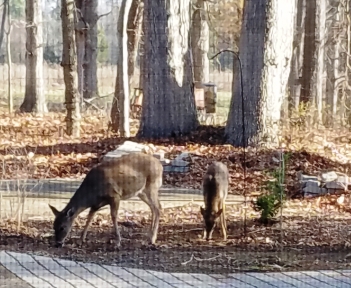
 (Not my pic, but funny)
(Not my pic, but funny)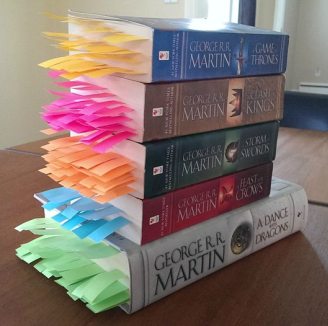 Thrones, anyone?
Thrones, anyone?